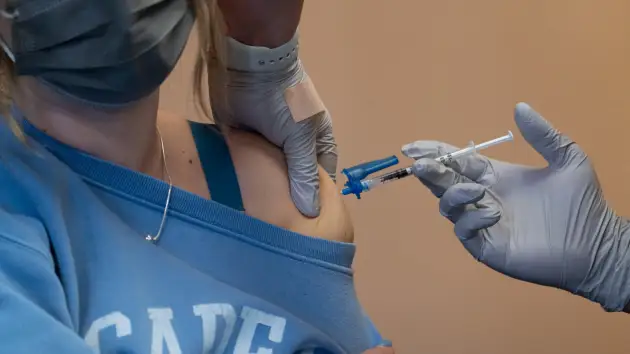Omicron Boosters Probably Won't do Much for Minor Covid Sickness, But they'll Probably Stop Hospitalizations

However, experts predict that the new omicron Covid boosters will help keep the elderly and other vulnerable populations out of hospitals this winter even though they are probably not particularly successful in preventing Covid infections and mild illnesses.
The boosters are less than 50% effective against mild sickness across nearly all adult age categories, according to a real-world study by the Centers for Disease Control and Prevention published this week. This is when compared to persons who are unvaccinated.
When given as their fourth dose, the booster was 19% more efficient than the unvaccinated at avoiding mild sickness in seniors. On the fifth dose, it had a 23% success rate against moderate sickness.
People who received the boosters fared better than those who did not, despite the vaccine's modest benefit against mild sickness. Depending on the age and when the last dosage was administered, the booster enhanced people's protection against mild sickness by 28% to 56% in comparison to those who just received the old shots.
To achieve the high levels of protection the vaccines displayed in late 2020 and early 2021, the Food and Drug Administration approved the boosters in late August. The vaccinations were then more than 90% efficient at preventing infection. However, the CDC's initial real-world data shows that the boosters aren't living up to those high promises.
John Moore, a professor of microbiology and immunology at Weill Cornell Medical College, stated that although the boosters provide some additional protection, they are not a very effective kind of defense against infection.
According to Moore, those who are more susceptible to Covid should get a booster because it only slightly improves protection. But he added that while the boosters aren't very successful at preventing infection, common sense precautions like masking and avoiding crowded places still serve as useful tools for vulnerable groups.
When omicron BA.5 was predominant from September through November, the CDC investigation focused on more than 360,000 persons with healthy immune systems who tested positive for Covid at retail pharmacies. The subjects either received the booster shot, two or more doses of the previous vaccinations, or they were not immunized at all. The individuals who tested positive for Covid were then contrasted with those who did not.
It is still unknown whether the boosters will offer better protection against hospitalization than the conventional shots because the study did not assess how well the boosters performed against serious diseases. In a statement, the CDC promised to share information on more serious outcomes as soon as it is available.
In an era of highly immune evasive omicron subvariants, Andrew Pekosz, a virologist at Johns Hopkins University, said that the fact that the shots offer some protection against infection is a good indication that they will offer robust protection against hospitalization. According to him, vaccines have always worked better against severe illnesses than mild illnesses.
"It's preferable to nothing. It doesn't necessarily indicate that the level of protection against infection is really great, according to Pekosz. Then, I would anticipate seeing substantially more protection against hospitalization or mortality.
Since the antibodies that block infection merely diminish over time, Dr. Paul Offit, a member of the FDA's vaccine advisory council, claimed that aiming to prevent mild sickness is not a workable public health strategy.
"In the omicron subvariant period, protection against mild disease really isn't that good. Offit, a specialist in infectious diseases at Children's Hospital of Philadelphia who worked on the rotavirus vaccine, stated that the aim was to provide protection against serious illness.
The data, according to Dr. Celine Gounder, a senior public health fellow at the Kaiser Family Foundation, are not alarming. Even a little reduction in risk at the individual level can have a substantial positive impact on population-level public health.
Given that the elderly account for 90% of COVID deaths, Gounder said it would be substantial to cut risk among them by even 30% or 20%. For me, the most important thing is if you can keep the 65-year-old out of the hospital.
The boosters, also known as bivalent vaccines, target both the 2019 Covid strain that initially appeared in Wuhan, China and omicron BA.5. The initial doses, also known as monovalent vaccinations, only contain the first strain of Covid.
The effectiveness of the boosters against more immune evasive omicron subvariants, including BQ.1 and BQ.1.1, which are currently prevalent in the U.S., is still unknown. Early results from human trials, according to Pfizer and Moderna last week, reveal that the boosters trigger an immune response against these subvariants.
According to CDC data, 35 million out of the 41 million persons who are eligible for the new booster have already received it. A little over 30% of seniors have had the shot.
Source: https://www.cnbc.com/
Post a Comment